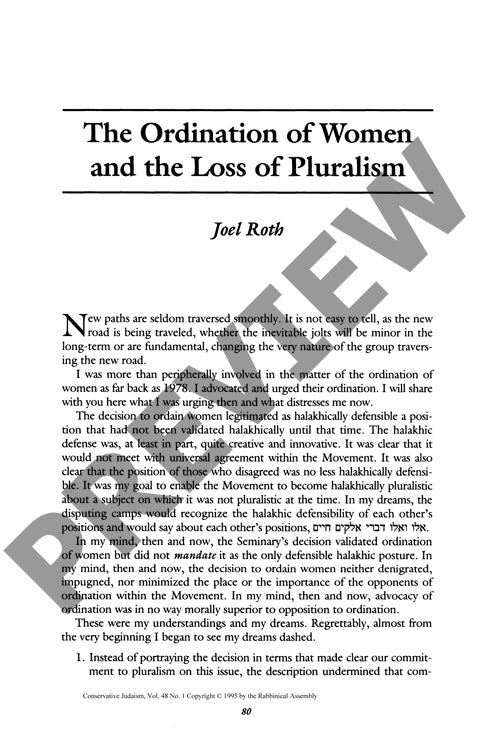The Ordination of Women and the Loss Of
Couldn't load pickup availability
The Conservative Movement's 1978 decision to ordain women rabbis inadvertently undermined the very pluralism it sought to preserve. Through historical analysis and personal reflection as an original advocate for women's ordination, I trace how institutional practices and rhetoric transformed a watershed moment of inclusion into an ideological litmus test. Examining nine key areas of movement discourse and policy reveals a pattern of anti-pluralistic messaging that contradicted the intended "elu v'elu" (these and those are both words of the living God) approach to halakhic disagreement. Rather than maintaining space for legitimate opposition, implementation strategies effectively marginalized traditionalist voices by portraying the ordination position as morally superior. This rhetorical shift has fundamentally redrawn the movement's ideological boundaries, driving moderate conservative voices to the margins and shifting the theological center leftward. Without deliberate intervention to restore genuine halakhic pluralism, the cost of women's ordination to Conservative Judaism's traditional diversity of legitimate positions may prove far greater than anticipated, ultimately impoverishing rather than enriching the movement's character.

More Information
-
Physical Description
-
Publication Information
Published
ISBN
-
Publication Credits
Joel Roth

